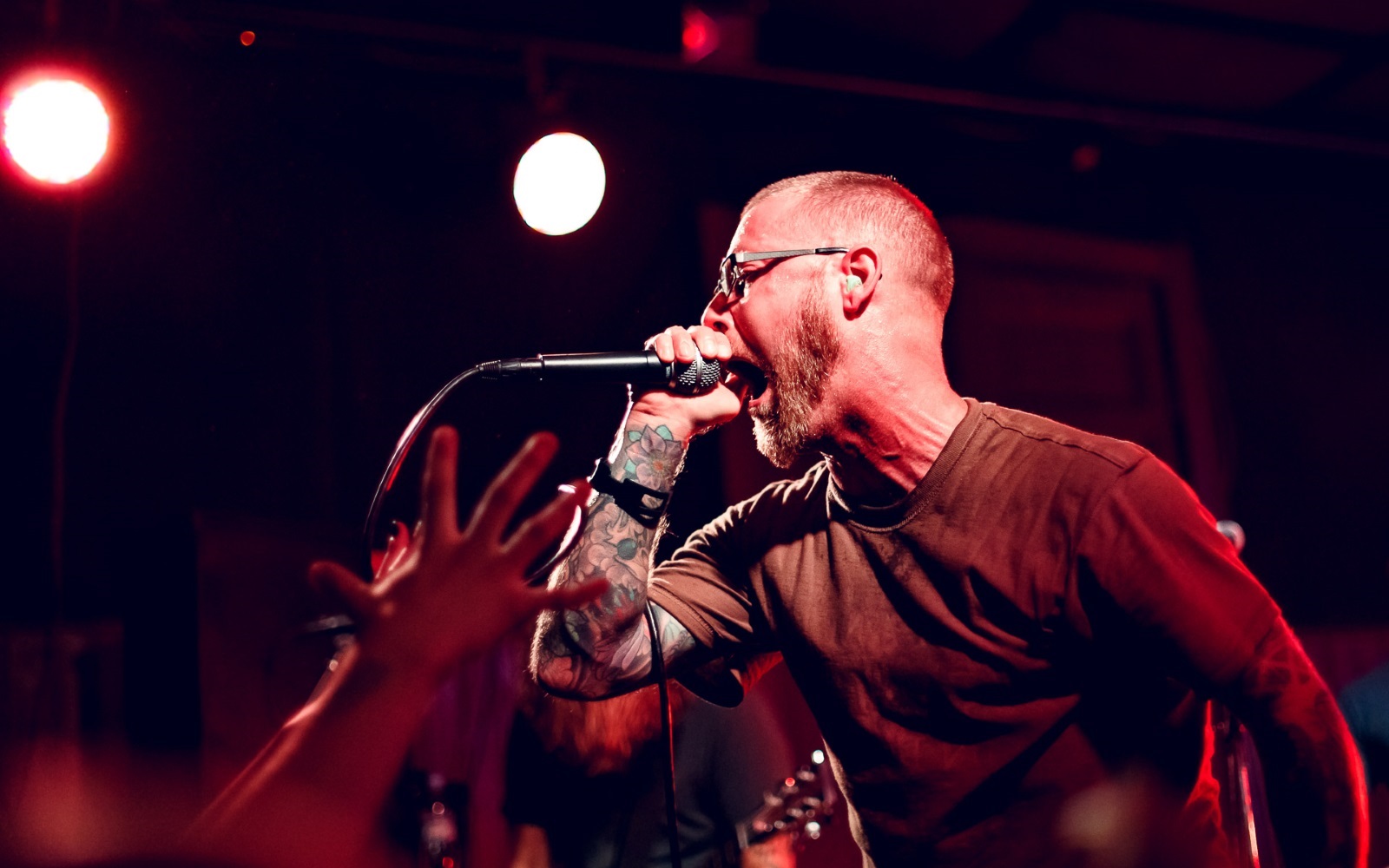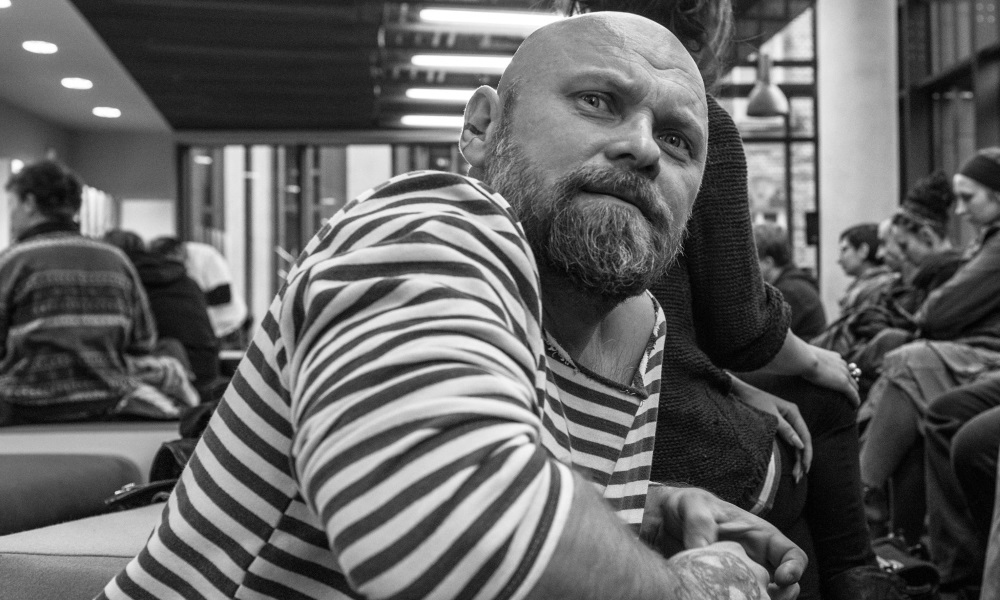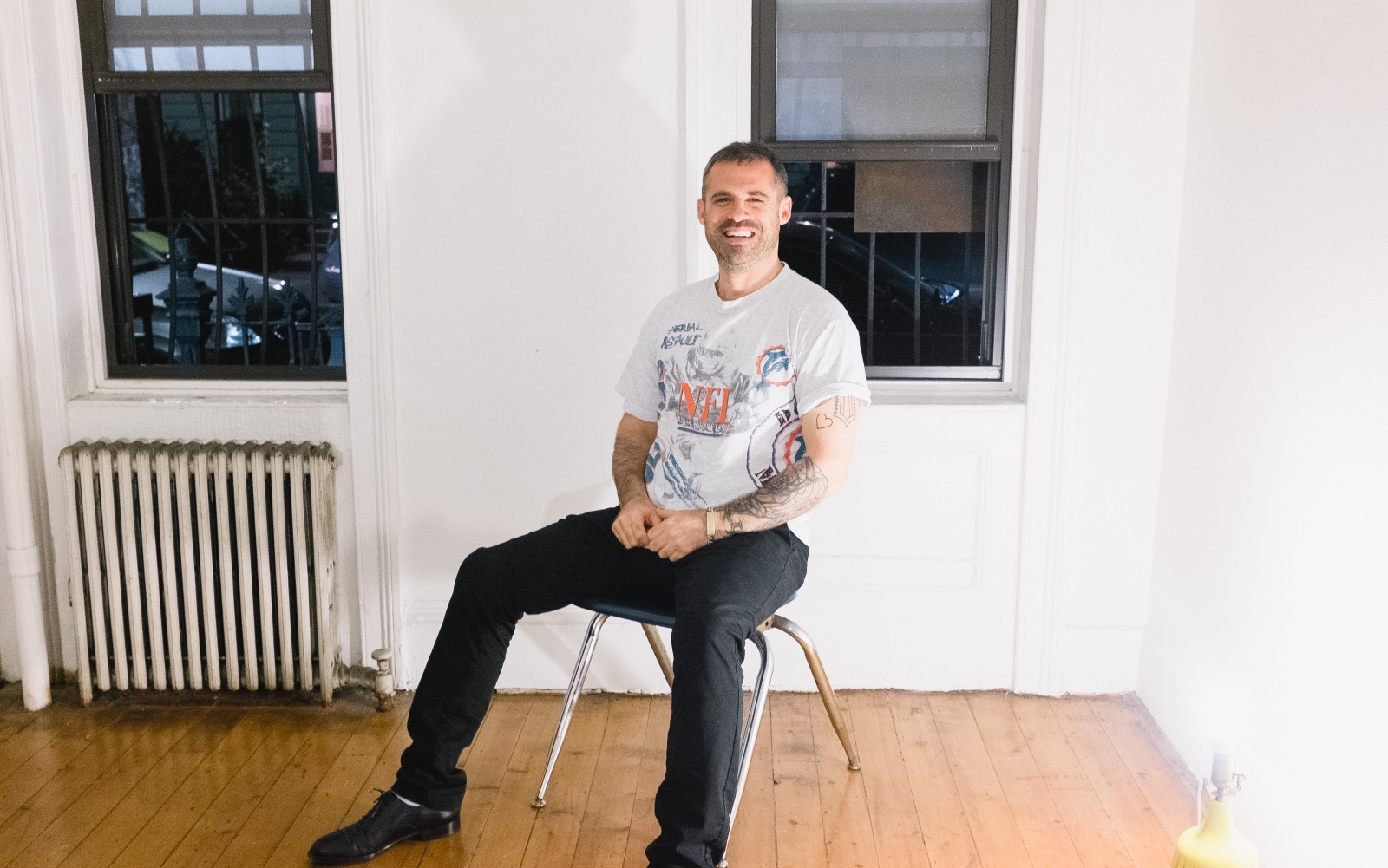The Philadelphia-based independent post metallers ROSETTA have successfully spent the past 14 years establishing themselves as one of the most creative storytellersand most innovative soundscape architects in the game. On their recent 6th full length record “Utopioid”, they tap into some lighter, atmospheric, epic and organic sound fusio, designed to create more balanced, elegant, and even more meaningful work of art. ROSETTA once again demonstrated their gift as composers while crafting a most remarkable addition to their discovery.
While preparing for their upcoming tour in Asia, New Zealand, Australia (alongside sleepmakeswaves), and Tasmania, the band’s guitarist Matt Weed sat down with us to talk about “Utopioid”, and some of its core content, including environmental issues, climate change, scientific facts, and more.
ROSETTA are: Mike Armine – vocals, electronics, Dave Grossman – bass, vocals, Eric Jernigan – guitars, vocals, keyboards, Bruce McMurtrie Jr – drums, percussion, vocals, Matt Weed – guitars, vocals, keyboards.
Hey guys! Thanks so much for your time. How are you? How’s the Utopioid era been treating you so far?
Can’t complain. Just finished a month-long tour of the western USA and Canada last month, excited to head out again next week.
The record brings a revelatory approach to a well established style and I truly believe yu guys continue down your remarkably innovative path here. Given it’s your 6th full length, it’s quite an accomplishment! Personally, how do you view the final effect and how do you feel you guys have evolved over the years?
We’re really proud of Utopioid. It feels like a more collective vision, and more fully realized, than anything we’ve done before. I think we’ve always tried to broaden our sonic palette and make new sounds with every release. We took a lot of risks with instrumentation and arranging on Utopioid that I don’t think we’d have had the courage to take in the past. I don’t think we’re getting ‘harder’ or ‘softer’ as time goes on, just developing much more variety in how we can communicate with sound.
Has reviewing other works and records in terms of inspirations changed the way you’re thinking about composing? What fuels your creative ideas?
I think we’re all listening to a lot more drone, ambient, experimental, and electronic music than we were a few years ago. In reality, it’s been many years since any of us primarily listened to heavy music. So I think on the last two records there has been an outsized influence of noisy 90s rock coming into play, followed by a lot more lo-fi electronic kinds of sounds. And without any particular ‘influence’ driving it, there’s also been a lot of attention to the raw sound of a clean electric guitar, and how dynamic and shimmering that can be.
Ok, so tell us a bit about the concept of the record and how hard was it to lock such a multilayered story inside a transcendent and moving opus like Utopioid?
It took a lot of time, mostly because of how intensely collaborative the process was. We brainstormed extensively about the concept before we even wrote music for the album, so it was pretty top-down and not organic at all. We came up with a map of the whole thing and then wrote for specific parts and moods that we had agreed on in advance. The album has a four-part structure, with each of the parts mapping variously to different concepts like cardinal directions, four seasons, etc. There’s a life-cycle narrative that runs throughout the album, following a nameless/genderless character from birth to death, but hinging on a kind of “negative ephiphany” or life-derailing disappointment in the middle. That’s the ‘opioid’ part of the title; drugs come into play almost as a foil to the main character, an accuser of sorts. It has a pretty bright and uplifting beginning but a really dark climax and ending. That was one of the goals throughout — let each song concentrate more deeply on a narrower set of tones and moods, but let the album as a whole vary widely from song to song.
There’s a huge, growing body of research that further proves that when we fail to protect nature we end up with long-term, irreversible losses. That’s probably well connected to the fact that our human tendency is short-termism. Why do you think it’s so hard to make issues like climate change and ecosystems degradation more visible and understandable?
Addressing something that huge requires complex collaboration. I think tribalism (of many different kinds) really gets in the way. We’re dealing with that in a huge way in the USA right now, where different political factions have disagreements that seem to be fundamentally cultural their roots, but which begin to be articulated along policy lines. A large percentage of the US population believes that climate change is a hoax designed to oppress them, personally. They need to believe that because it allows them to feel that they’re part of a tribe of people “like them” who are being crapped on by some dark and sinister force. That provides an organizing principle to help make sense of the disappointment and anomie that they experience in their lives. It’s pretty awful to feel like nothing matters and you’re miserable but you have no idea why (that’s in large part the experience Utopioid deals with). Readymade narratives of us-against-them become pretty appealing when there’s nothing to look forward to and no explanation for your suffering. So when climate action is being pushed by the “other” side in whatever culture war you’re fighting, it doesn’t matter whether it’s understandable or not. It’s not about the science, it’s about how your opinion ABOUT the science is a proxy for your cultural affinity. That dynamic is toxic and self-destructive and it only serves the interests of the rich and powerful.
Earlier this week, a group of 15000 scientists have released a new warning 25 years after the original caution from 1992 known as “World Scientists’ Warning to Humanity.”
I saw that, and it’s deeply alarming. Environmental degradation has been a big issue for me personally for a long time, especially since I’ve spent time in tclhe Arctic and have witnessed first hand how rapidly things are changing there. But again, since scientists are part of the “them” in the culture wars, I doubt that many people will be newly convinced by it. That makes me miserable to think about, but it’s probably the truth.
How do you evaluate the rise of the new controversial administration in the U.S. in this context?
It seems from the evidence that Donald Trump is psychologically unwell and not very knowledgable about much of anything beyond his own impulses. He is, objectively, a poor leader and a bad influence on everyone and everything he involved with, and an entirely toxic presence in national discourse. That said, he has become a vessel into which previously dominant cultural blocs have poured their resentment and anger at the feeling of being displaced or disenfranchised by ascendant minorities. While I don’t agree with those resentments, I understand how they come about, given the propaganda news environment and the DEEP separation between urban and rural culture in the USA. I think that repudiating Trumpism in the USA is going to require a lot of suffering and disappointment before “the fever breaks.” But I think that may already be happening.
Considering the whole mixture of social, political, and environmental issues that condition our future, what do you consider to be our best hope for sustainability?
I really don’t know. Incremental changes in consumer behavior are NOT going to be enough. It’s going to require massive coordination and some changes to industry and commerce that will inevitably be painful. But the alternative is far, far worse. I know I’m personally tired of hearing endlessly about “market-based solutions” that pretend that we can just invent some new technology that allows us to keep doing what we’re doing with no consequences. Beyond that, it depends on what you mean by “sustainability” — just human survival, or preservation of some or all aspects of our current natural environment? What’s an acceptable sacrifice? How many species’ exctinction are we ok with?
Ok, so back to your recent work and drawing some plans for the future, are there a particular theme or set of ideas that you are hoping to explore further on your next record(s)?
I’d personally like to examine environmental issues through the lens of melancholy and loss (as opposed to catastrophe or tragedy). But I think the other guys have other things they’re stewing on as well. We don’t have a plan for the next one just yet — that may depend on how the next couple of years goes at home and abroad.
Utopioid marks your third album offering released independently ithout a traditional record label. What makes it a good model for a well established and experienced band like ROSETTA?
Having an established fan base means that we can quickly recoup expenses on each new release and have the ready capital to move onto other projects, whether they’re tours or side-releases or physical media, whatever. It’s just turned out to be the most efficient way for us to operate and ensure that we’re never in a financial hole. I’m not sure if such a model is workable for a band just starting out, but it has worked extremely well for us for the last four years, even as the music distribution landscape has shifted dramatically during that time.
You’re about to hit the road with SLEEPMAKESWAVES later this month. How did this tour come about and what are your expectations for this trek?
We’ve been friends with those guys for a long time, and have been wanting to do a tour together for ages. This was just the first time that the details worked out and we were actually able to do it. It just happened that we were both planning to tour AUS around the same time. We’re incredibly excited about it, because they don’t sound that much like us, but I think both bands bring a common energy to the live show that will work really well together on a bill.
Apart from touring, what are some of your other upcoming projects that we can look forward to?
It’s going to be mostly touring for the next while, though we are toying with the idea of a related drone EP highlighting some of the more buried textures in Utopioid.
Great, thanks so much for your time! It’s been a pleasure. Good luck for the tour and take care!
Thanks, looking forward to it!
Catch ROSETTA live on tour in Southeast Asia, Australia, and New Zealand:

29/11 Kaohsiung TW – Paramount Bar
30/11 Taichung TW – Sound Live House
01/12 Taipei TW – Revolver
02/12 Singapore SG – The Analog Factory
03/12 Kuala Lumpur MY – Rumah Api
05/12 Perth WA – Badlands *
06/12 Adelaide SA – UniBar *
07/12 Melbourne VIC – Howler *
08/12 Brisbane QLD – The Zoo *
09/12 Sydney NSW – Oxford Art Factory *
12/12 Wellington NZ – Valhalla
13/12 Auckland NZ – Ding Dong Lounge
15/12 Launceston TAS – Greenwood Bar
16/12 Hobart TAS – Brisbane Hotel* supporting Sleepmakeswaves












